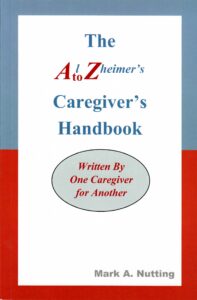The U.S. Food and Drug Administration (FDA) approved the medication Aduhelm (Aducanumab) June 6th, 2021, for the treatment of Alzheimer’s Disease. It took me so long to pronounce this medication “Add-u-can-new-mab”. Hope this helps you. Aducanumab is a human monoclonal antibody developed by Biogen. Biogen procured the drug from its creator, Neurimmune, a biopharmaceutical company in Switzerland. Although there are medications approved to slow down the progression of Alzheimer’s Disease, such as Aricept (Donepezil) and Namenda (Memantine), Adulhelm is an actual treatment.
Aduhelm was in the final stages of the FDA approval process when it was taken out in 2019. This was due to there not being enough proof that it did the job. However, Biogen investigated it deeper and was able to convince the FDA that the drug should return to the approval stages as it may work in higher doses. Aduhelm is delivered via infusion once per month. This drug has shown evidence that it reduces Beta-Amyloid protein plaques in the brain. A toxic Beta-Amyloid protein is the culprit in Alzheimer’s Disease. Abnormal levels of this protein clump together and build plaque which collects between the neurons and disrupts brain cell function.
This is certainly a confidence booster for people with Alzheimer’s Disease and their loved ones. This would have been an incredible sense of hope for me and my family when my Grandmother was diagnosed with Alzheimer’s Disease. Could Aduhelm have treated her disease? Could Aduhelm have provided her with more years? Could Aduhelm have offered her a higher quality of life? I am sure there are so many people who are learning of this approved drug and are wishing the same for their loved one who died with Alzheimer’s Disease.
The controversy lies with the premature and expedited approval process for this particular drug. There are a few reasons for concern. One is that there are uncertainties regarding the clinical benefits of Aduhelm.
There was a vote in November of 2020 whereby the FDA advisory committee voted to not approve based on these uncertainties. Now, June 2021, the decision is to approve. This approval is contingent on Biogen conducting a confirmatory trial post-approval. What this means is that FDA could retract the approval. This is very unconventional for the FDA process.
The next controversial issue is that there is a question as to whether the Centers for Medicare and Medicaid Services (CMS) will approve coverage. The wholesale cost of Aduhelm is $56,000 annually. The Institute for Clinical and Economic Review estimates that if the drug does show benefit, a price between $2,500 to $8,300 would be cost-effective. That is a far cry from $56,000. Although there are millions of people who may qualify to receive Aduhelm, unless there is Medicare approval, this will not be possible. CMS has a guideline by which they approve coverage. This is known as “reasonable and necessary.” This requires confidence that the drug is safe and effective and not experimental, and it is appropriate for Medicare patients. It is currently unknown as to whether Aduhelm will be considered reasonable and necessary. There will no doubt be qualifying identifiers such as a positive Positron Emission Tomography (PET) scan that will be required for the individual to receive approval to receive the drug.
There are so many who live with cognitive impairment who have no diagnosis. Many people delay a neuropsychological workup due to their own denial. The diagnosis of Alzheimer’s Disease presents its own stigma related to people’s lack of knowledge and fear. The sad reality of this approval is that we will see and hear all the marketing and promotional efforts for Aduhelm; however, there will be minimal access, if at all. Ending on a positive note, this is precedent-setting and moving us closer to our potential for a future without Alzheimer’s Disease.







